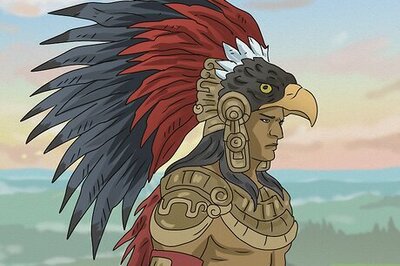
views
New Delhi: Wikivoyage, the newest project by the Wikimedia Foundation (WMF), was launched on January 15, 2013, the 12th anniversary of Wikipedia. Like its sister projects, the ad-free worldwide travel guide available in nine languages can be edited by anyone.
All its content is available under a free (CC-BY-SA) license. WikiVoyage claims to have approximately 50,000 articles as of launch. Wikivoyage is an attempt to club the detailed, personal and up-to-date nature of content on travel websites with broader and authoritative travel content.
Many travel guides in one
A typical Wikivoyage page for a travel destination has a few photos and sections like any other travel guide: places of interest, history, shopping, accommodation, sightseeing, climate, medical care, getting around, camping, cuisine and so on. The listings are further drilled down to suit various categorisations - hotels are classified as budget hotels, mid-range hotels and high-end hotels; places for eating out range from roadside kiosks to fine dining restaurants. Ready reckoner-like information about hospitals, postal and courier services, emergency phone numbers, rules for general safety, local laws everyone should know etc. is included under the 'Contact' section. Wikivoyage contains various types of maps/guides to language and everyday conversation, itineraries and general travel related topics. Each page is also available in PDF and printable versions for offline access. One grouse we have is that the map selection for Indian destinations is rather thin.
Handling difference of opinion
Wikiyoyage policies clarify that the project intends to be comprehensive but does not serve as a directory of travel listings. This leaves room for difference of opinion between editors about the content that can be included and that which should be left out. An editor who has found the service rude at a restaurant would want it struck off the list, whereras another would opine that it has great food. As with other Wikiprojects, difference of opinion is handled at Wikivoyage by trying to achieve consensus. Contentious topics could also include many different points of view in the final article.
Wikivoyage in more languages
Wikivoyage is currently available in Dutch, English, French, German, Italian, Russian, Portuguese, Spanish and Swedish. Contributors who wish to start a version in their own language can do so by submitting a request to the WMF.
Comparison with Wikipedia
Wikipedia has articles on notable travel destinations and enterprises across the world (and a new page can be created for those that don't have one already). As Wikipedia is structured as an encyclopedia, unverifiable information is tossed out of Wikipedia. Content on Wikivoyage is less encyclopaedic than Wikipedia. Wikivoyage focuses more on content of practical use to the traveller. Content on Wikivoyage does not need to be strictly verifiable; it allows for more informal and personal experiences to take precedence over prosaic travel guide-like information. Unlike Wikipedia, Wikivoyage does not insist on a neutral point of view. On the contrary, the point of view of a traveller seeking information is assumed.
How is it different from Wikitravel?
Wikitravel, another travel wiki available under the CC-BY-SA license, is run by a for-profit organisation, Internet Brands. A section of editors from the German and Italian versions of Wikitravel broke away from the website and launched the WikiVoyage Association in 2006. The project was migrated to the Wikimedia Foundation in 2012, where it was in beta for two months till November. The content present at the launch of the public beta of Wikivoyage was forked from content published on Wikitravel. All Wikivoyage policies too have been inherited from Wikitravel. They are currently being tweaked to suit the new setup. The images from Wikitravel have also been duplicated to the Wikimedia Commons.
To read more visit: www.tech2.com
















Comments
0 comment